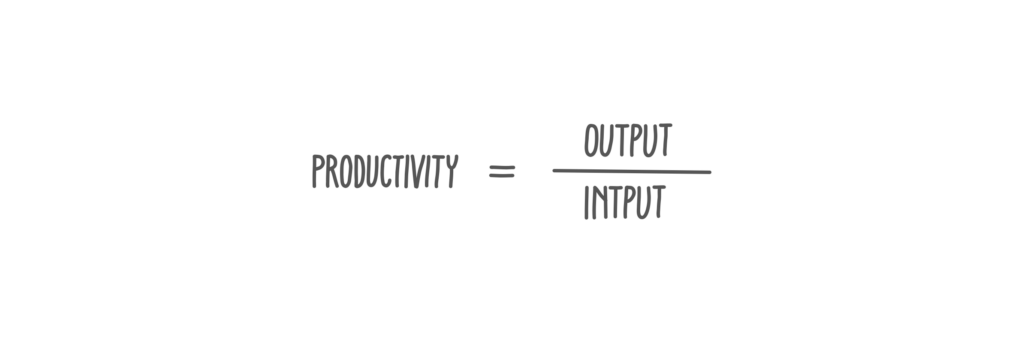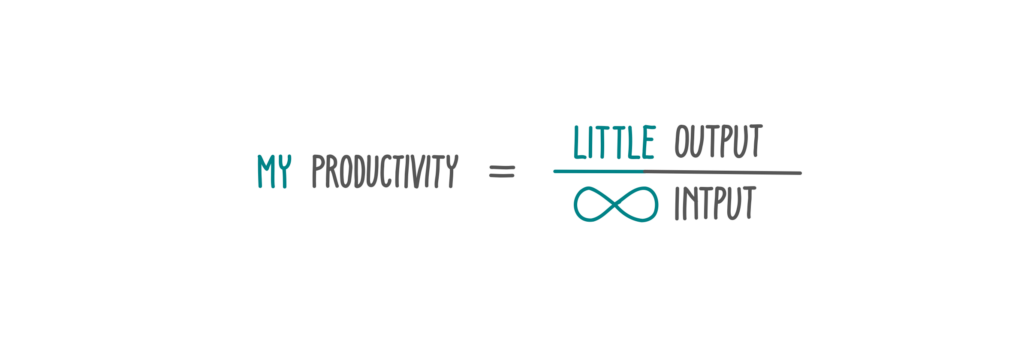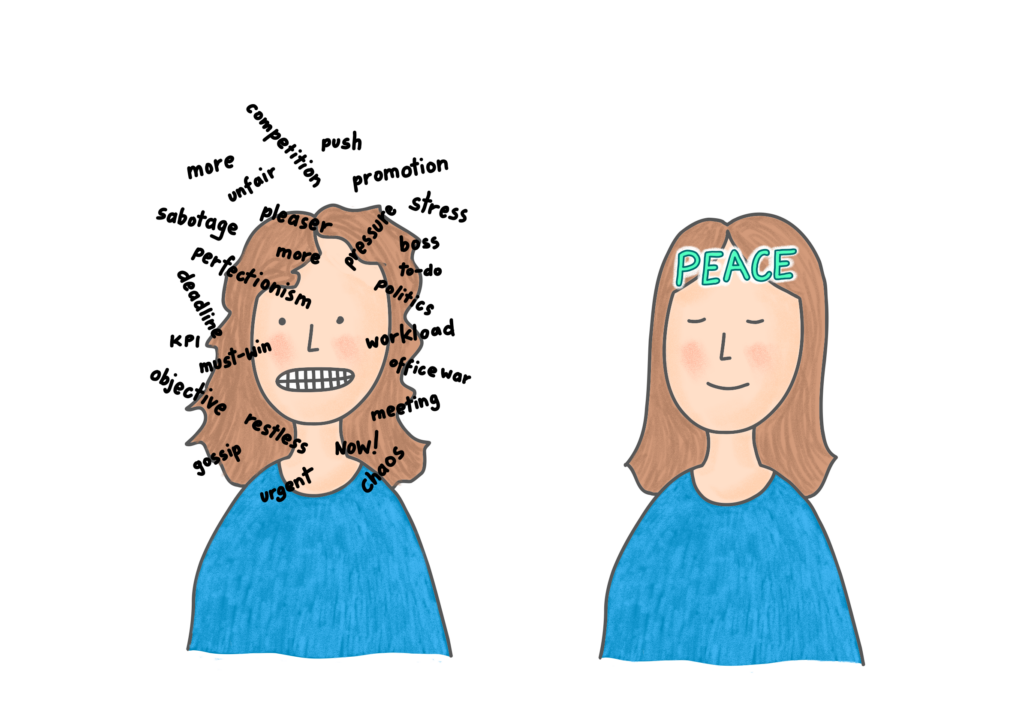From productivity to serenity, part 1: When your brain doesn’t cooperate
This article is opening a series about “Serene Performance”.
We explore a universal framework that helps to achieve progress on your goals while keeping a calm state of mind, putting an end to unproductive stress and hustle.
Productivity is easy.
You just time-block your day. You mind your energy level, optimize your schedule and off you go, happily producing your best work in a breeze in the time block you are most creative, then go to a yoga class and socialize, just to start over the next day refreshed, and boom, done.
But what if your brain just won’t comply?
What if your brain chooses to just be uncreative during your scheduled tiger time, so that you stare at a blank page for an hour, and nothing got done in this precious time block?
Scheduled creativity versus I-just-want-to-chill-now-just-because attitude, who wins?
What if – ha, now showing you who is the boss – your yoga class is far from calm, because your brain chooses to work in high gear just now, bombarding you with ideas and thoughts that want to be processed right now, right here, in the middle of a complicated asana which you fail at performing?
Uncontrolled idea overflow versus planned mindfulness – who is the boss here?
Productivity is easy.
There are countless productivity techniques, promising progress at a push of a button. Just time block your day. Just mind your energy levels. Just organize your To-do and Not-to-do list to follow through on the things “that truly matter”. Just. Get. Shit. Done.
Productivity is easy – or is it?
Some time ago, I thought I had a productivity problem.
I had taken the decision to follow through on some ideas that were simmering in the back of my head for quite some while, wanting to be let out, wanting to be explored.
So, I decided to follow the call and make them happen. It felt like the right time.
And then I went straight into procrastination hell.
It took me by surprise that nothing got done.
It’s not that I can’t be productive. If there is a deadline at work, I can perfectly deliver on time. I’m organized enough and disciplined enough, so it should be easy to transfer those abilities to my own passion projects. At least so I thought.
But this was different.
I just could not focus.
The decision to work on my own ideas did not lead into a nicely organized day of happy production but opened a floodgate of overwhelm. What I thought would become some smooth writing of neatly organized essays became an avalanche of new ideas piling up on top of each other, creating an entangled mess of stuff screaming to be acted upon.
I tried some productivity techniques. Or rather, I tried them all.
To-do lists, backlogs, pomodoros. Habits, routines, workflows. Decluttering, organizing, planning. Not to forget goal setting, streak tracking, self-rewarding.
And it was all BS.
This was harder than I thought.
“Work smarter, not harder” is what they say. But maybe working smarter is not enough, maybe you need to do both: First, a lot smarter, and then, harder again, now in a smart way.
I tried to force myself into productivity, gritting my teeth some more. I geared up on discipline and consistency, applying all the good techniques, even getting up before six (which is quite hard for me).
But in all the smartness, nothing got done, still.
I got somewhat productive, but I was paying for this hard-earned productivity with unease and exhaustion.
What was going on?
It’s not more productivity you need, it’s less overload
My curiosity awoke. If all the productivity hacks didn’t work, what was I missing here? I took a closer look at the concept of “productivity”. In a simple formula, it is defined as output relative to input.

What looks profane – everybody can figure this out easily – was eye opening.
I had tried to maximize output – the dividend – to move my productivity from zero to something – anything – larger than that.
But looking at the formula, I realized the problem was not the dividend.
The problem was the divisor.
While the output was zero, the input was infinite. And that was a much bigger problem.

The problem was not that I couldn’t produce.
The problem was that I was in a state of idea overload.
There was too much I wanted to do. I had waited too long to start what had been sitting on my mind for a long time already.
The problem wasn’t that I couldn’t produce.
The problem was that I couldn’t decide what to produce first.
From peak productivity to serene performance
I understood I needed a new concept.
Instead of striving for “peak productivity”, I needed a new frame.
While “productivity” is good, it is lacking direction. So, I let go of my idea of maximizing output and added the quest for purpose.
While “peak” is good, it is exhausting. So, I removed the stress and added the state of ease.
What I found is “serene performance”.

We’ll further explore this concept in the next article, read it here: Part 2.
Get in Touch
What’s on your mind today? Share your thoughts and let’s connect.

